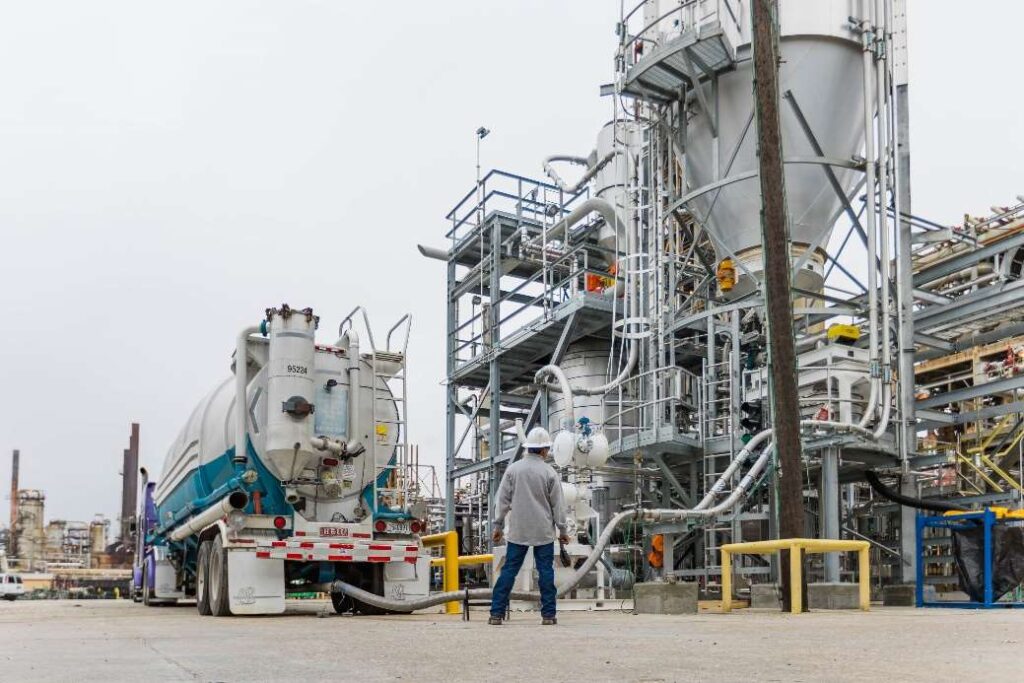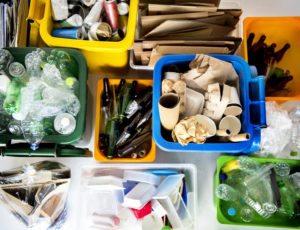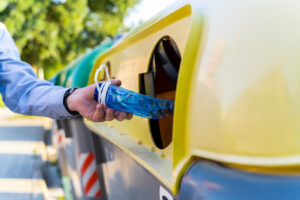
One-Pager
What is Advanced/ Molecular Recycling?
Molecular recycling, also known as advanced or chemical recycling, is a scalable technology which recovers plastic waste that may otherwise go to landfills or become incinerated. There are many different forms of advanced/molecular recycling technology, including methods such as pyrolysis, gasification, and dissolution.
Molecular recycling can be defined as:
The process of converting plastic back to its basic building blocks or extracting polymers (without breaking them into monomers) from post-consumer plastic in order to create new plastic products or packaging.
What is Advanced/Molecular Recycling NOT?
- It is NOT a replacement for mechanical recycling. Advanced/Molecular Recycling should supplement mechanical recycling for materials that mechanical recycling is unable to recover efficiently and/or recover as raw material safe for use in consumer packaging.
- It is NOT plastics to fuel. Advanced/Molecular Recycling should be a viable option in improving the circularity of plastics, and processes that only produce energy/fuel should not qualify as recycling.
- Pyrolysis is NOT incineration. Fundamental differences exist between these two processes. Incineration is an exothermic process and requires oxygen, while pyrolysis is endothermic and takes place without oxygen. Incineration also occurs at significantly higher temperatures than pyrolysis processes utilize.
Why is Advanced/Molecular recycling important for a circular economy?
Only around 9% of plastic waste is successfully recycled.1 Reaching circularity for plastic waste will require a holistic array of solutions. We are a strong proponent for prioritizing effective mechanical recycling across the United States. However, mechanical recycling alone is incapable of producing enough recycled content to:
- Meet the existing demand for recycled content
- Reach state legislative recycled content requirements
- Produce sufficient quantities of recycled plastic for use in food and medical packaging applications
Mechanical recycling can effectively sort some plastic polymers, such as HDPE and PET, but is unable to address other categories of plastic waste. Advanced/molecular recycling technology can complement mechanical recycling processes by providing a sustainable end of life for a variety of difficult to recycle plastic materials, including low-density plastics such as films and flexibles. There is currently not enough high-quality mechanically recycled plastic to meet producer demand due to supply limitations, availability, and quality. Additionally, some mechanically recycled plastics do not meet FDA requirements for food and medical applications due to downcycling (an adverse effect of mechanical recycling in which the quality of the material being recycled is reduced). Molecular recycling is a critical component of plastic packaging circularity, recovering it as a raw material at scale which can be utilized in high-quality plastic packaging that adheres to strict quality regulations for direct food contact and medical applications.
How should Advanced/Molecular Recycling fit within the circular economy?
Consumer Brands and its member companies developed principles outlining best practices for the integration of molecular recycling into the national recycling landscape to advance an accountable and safe, circular economy:
- Material to material: Molecular recycling should be a viable option in improving the circularity of plastics, and processes that only produce energy / fuel should not qualify as recycling or towards meeting recycling mandates for plastics (e.g., rates and content).
- Complement, not compete: The integration of molecular recycling technology can be complementary to mechanical recycling processes for the increased recovery of post-consumer recycled content.
- Equal environmental oversight: Molecular recycling should be subject to the same environmental permitting and oversight as a manufacturing facility under federal, state, and local laws. This includes health, safety, and environmental consideration given to surrounding communities.
- Accountable and Verifiable: Quantifiable and transparent chain of custody approaches, specifically credit based mass balance, should be utilized to follow materials through the value chain and to account for recycled content based on mass balance attribution.
- Equal consideration for legislative and regulatory requirements: Mechanical and molecular recycling should equally be accepted as tools in meeting legislative and regulatory requirements when the raw material output from the molecular recycling process utilized can, through a life cycle assessment or other scientific evidence-based form of analysis, demonstrate environmental benefits or mitigated/reduced environmental impact such as reduced greenhouse gas emissions.
- Actions support continued innovation for improved materials circularity: Regulatory action must be conducive to the advancement of new technologies capable of improving upon material circularity.
The Molecular Recycling Principles have been abbreviated to conserve space. The full version, as well as additional resources providing background information on advanced/molecular recycling technologies, can be found here.




